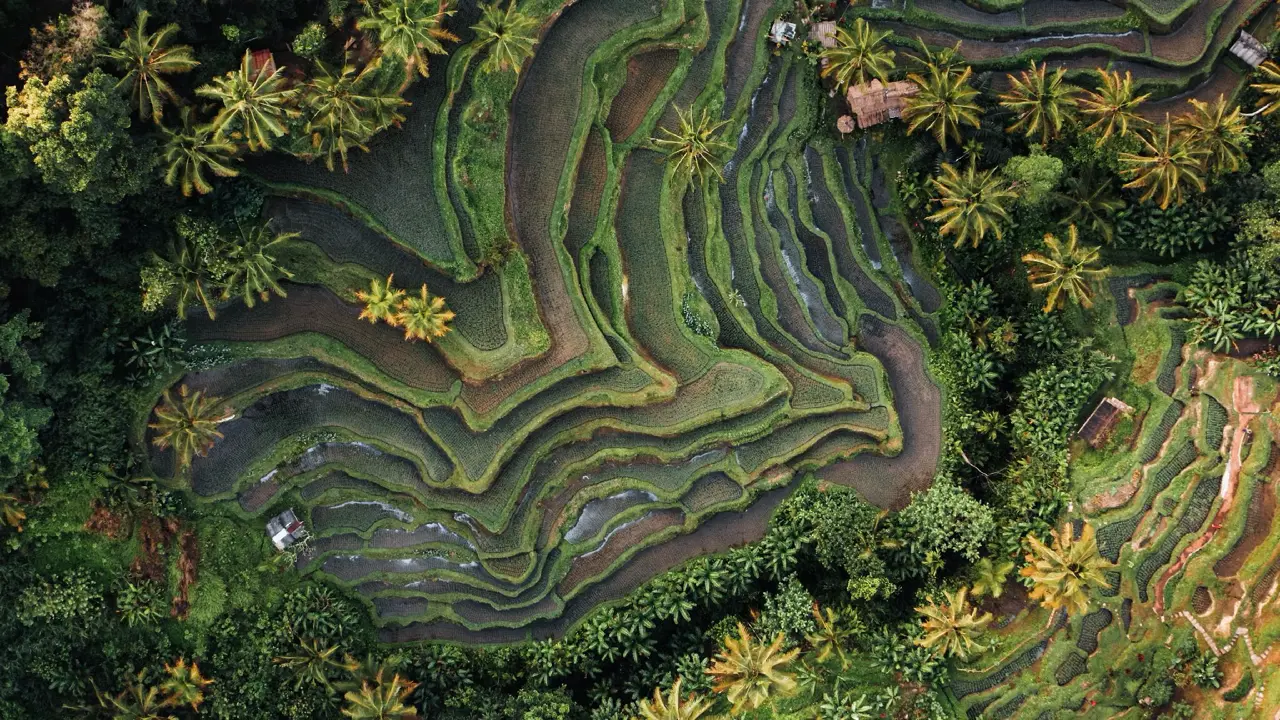
WorldxChange
An Information-Age Solution to the Tragedy of the Commons
The Idea
Realign Individual Incentives to Reflect Global Impacts
An automated system leverages remote sensing and international markets to enable payments to indigenous stewards who enhance the global commons.
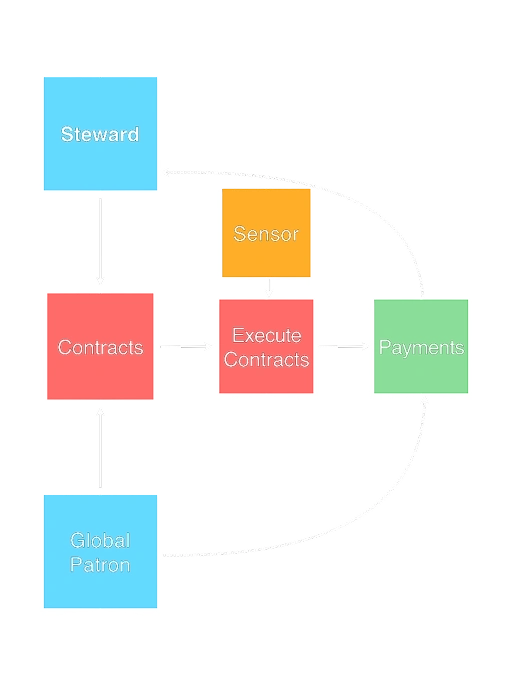
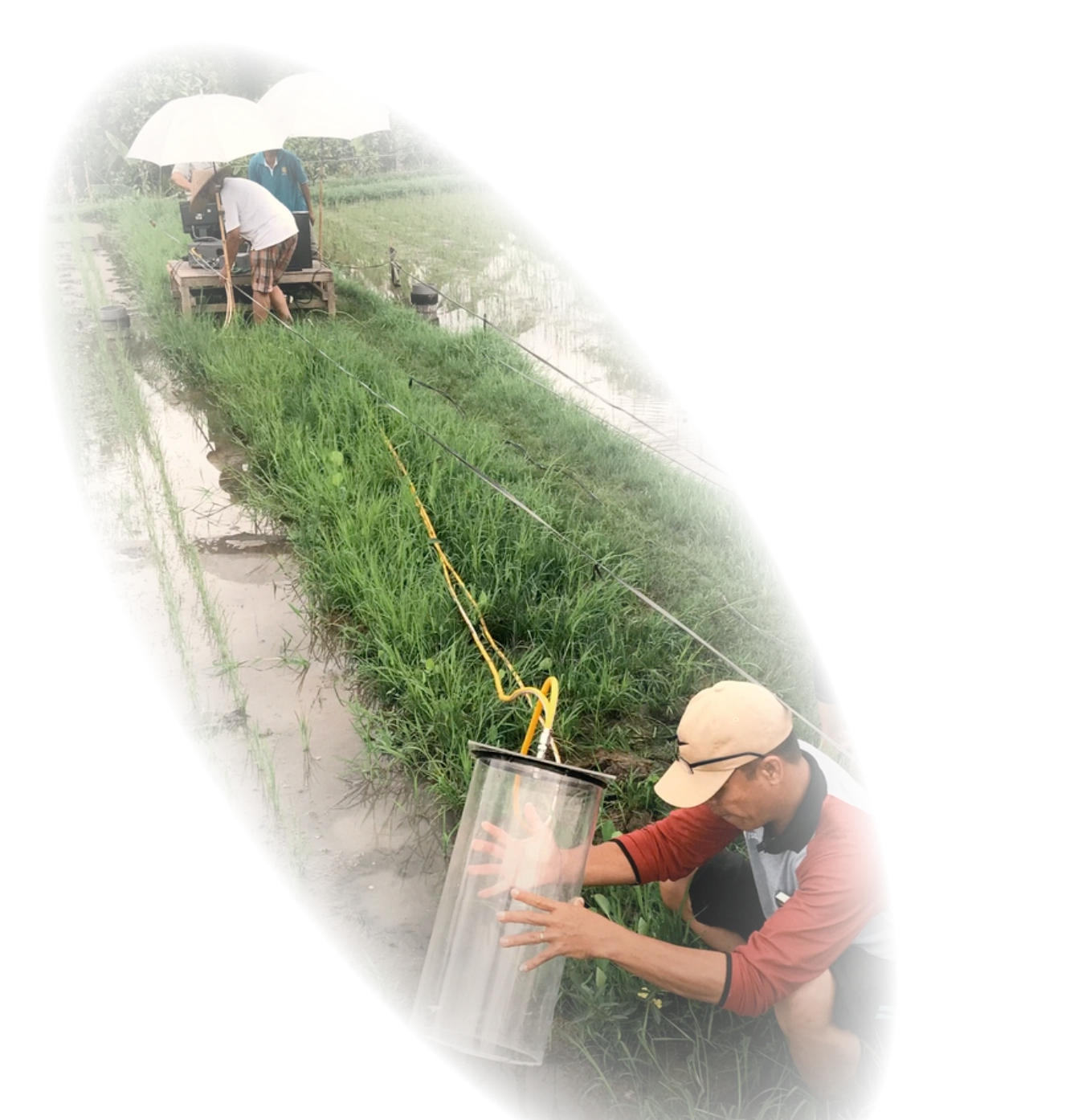
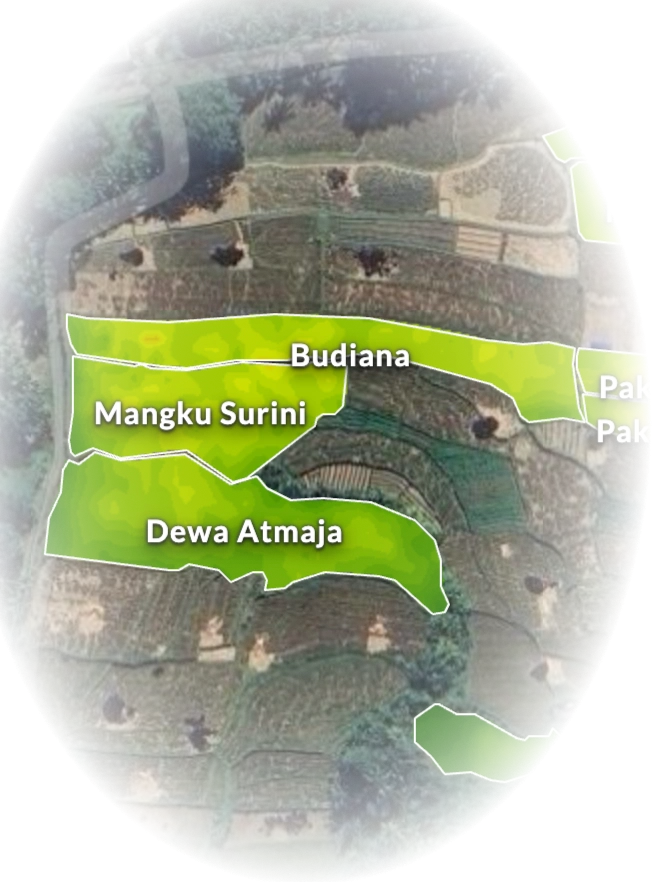
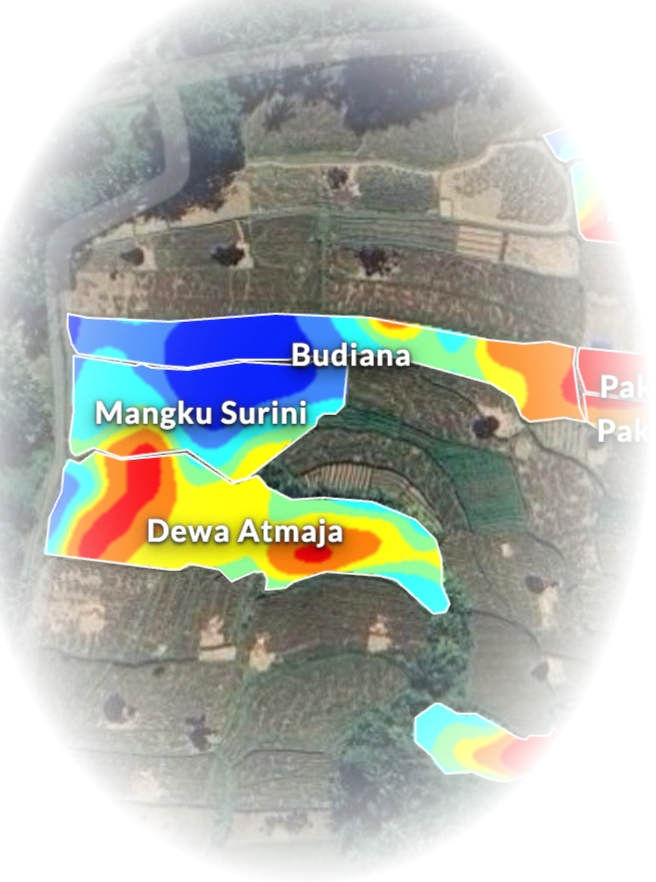
World Improving Numbers
WINs
Remote sensing creates trustworthy WINs that translate the actions of stewards into measurable outcomes such as tonnes of CO2e avoided or the amount of forest preserved in a natural state. High quality WINs generate payments for stewards from global patrons and markets.
Our pilot project
Bali, Indonesia
Rice on Bali has been sustainably farmed for over a millennium. Unfortunately, flooded rice paddies produce methane, a dangerous greenhouse gas. By changing their irrigation practices to Alternate Wetting and Drying (AWD), farmers can mitigate methane emissions from their fields. Compensating farmers for taking on the additional risk and effort needed to adopt AWD will allow Bali to embrace a new regime of globally sustainable agriculture.
Rice and the Global Commons
of anthropogenic global methane emissions come from rice farming.
Methane has
the Global Warming Potential of CO2. While methane has a limited lifetime in the atmosphere, such emmisions may push the global system beyond critical tipping points.
of the methane emissions from Balinese rice fields can be eliminated by not flooding the paddies. AWD also reduces the runoff of fertilizer that damages Bali's coral reefs.
Results from our earlier demonstration project on Bali
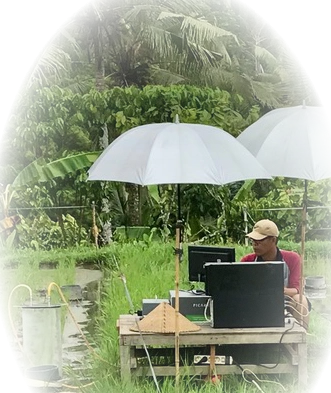
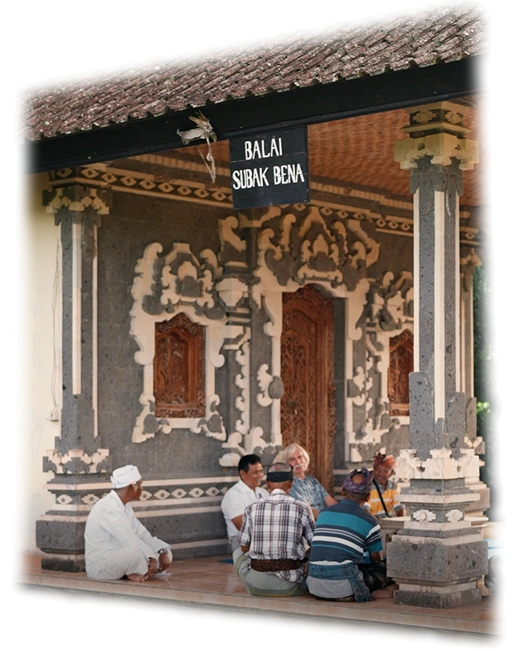
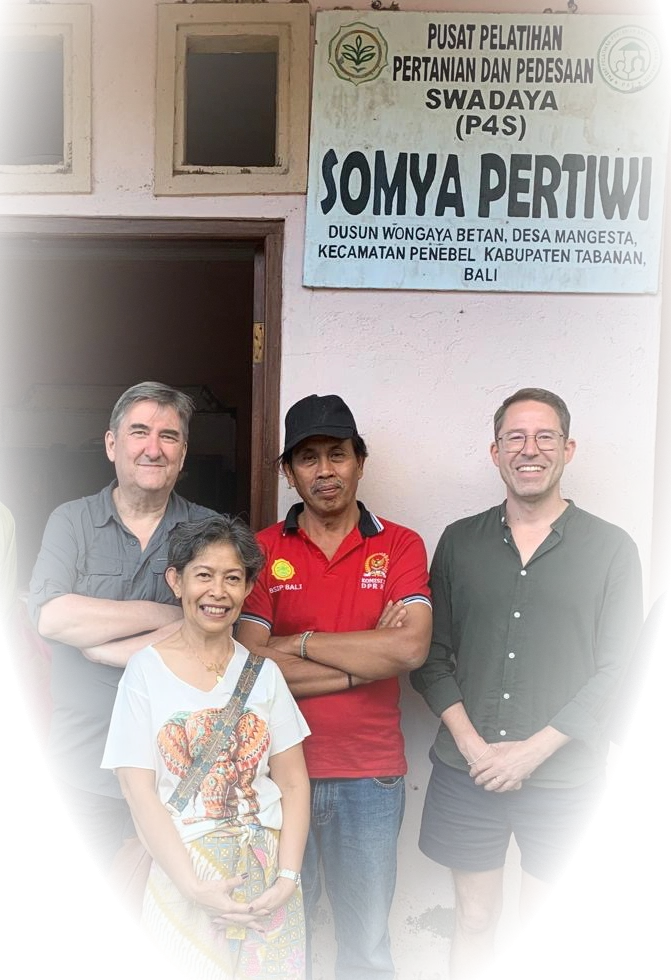
A Letter to the Future
was when the sustainability of the subak system was recognized as a UNESCO World Heritage site. Somya Pertiwi designed the UNESCO proposal for the Ministry.
subaks form the core of the UNESCO site. This site is where we will focus the next phase of the project.
sources of happiness form the Balinese philosophy of Tri Hita Karana: harmony among nature, humans, and the gods.
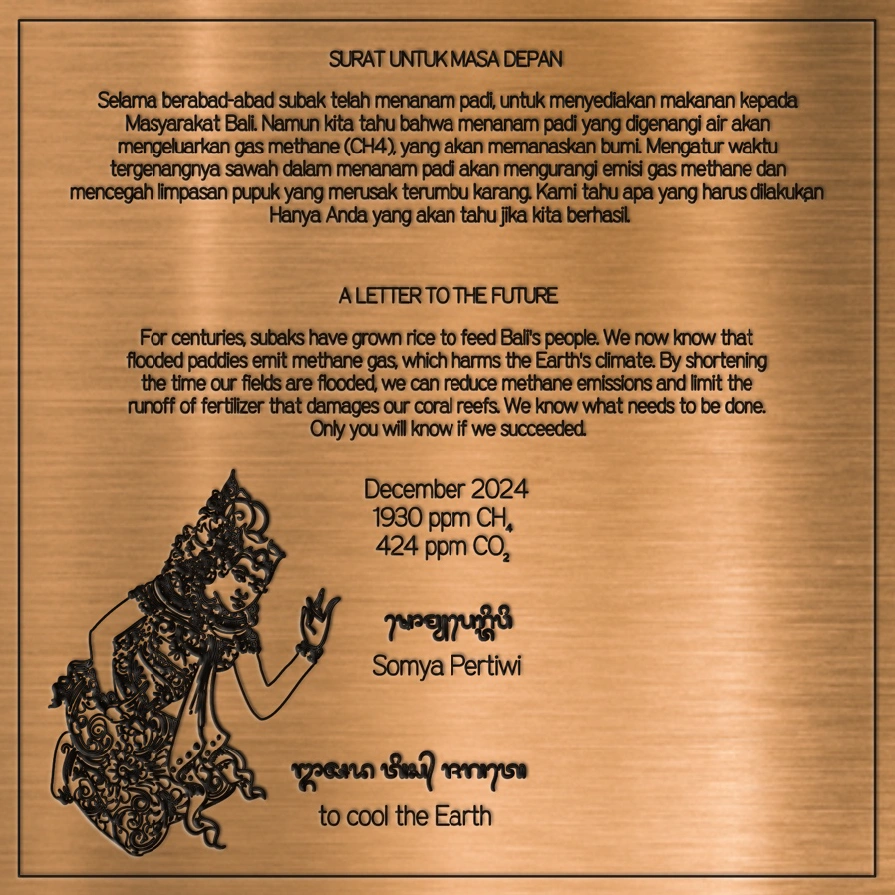
Each particpating subak will display our project plaque.
Next Steps
Engaging with WxC
There are many ways you can learn more about World-x-Change and participate in the Bali Project. If you want to know more about the underlying science and ideas driving World-x-Change, explore some of our research papers and background resources. If you want to increase WINs, please sponsor some Bali Project carbon offsets that will eliminate tonnes of CO2e from the atmosphere and support the indigenous land stewards who make this possible. Discover World-x-Change's team of people, organizations, and supporters working to apply quality science to improve the planet for both patrons and stewards. If you have any questions or comments, please connect with us.
Bali and Beyond
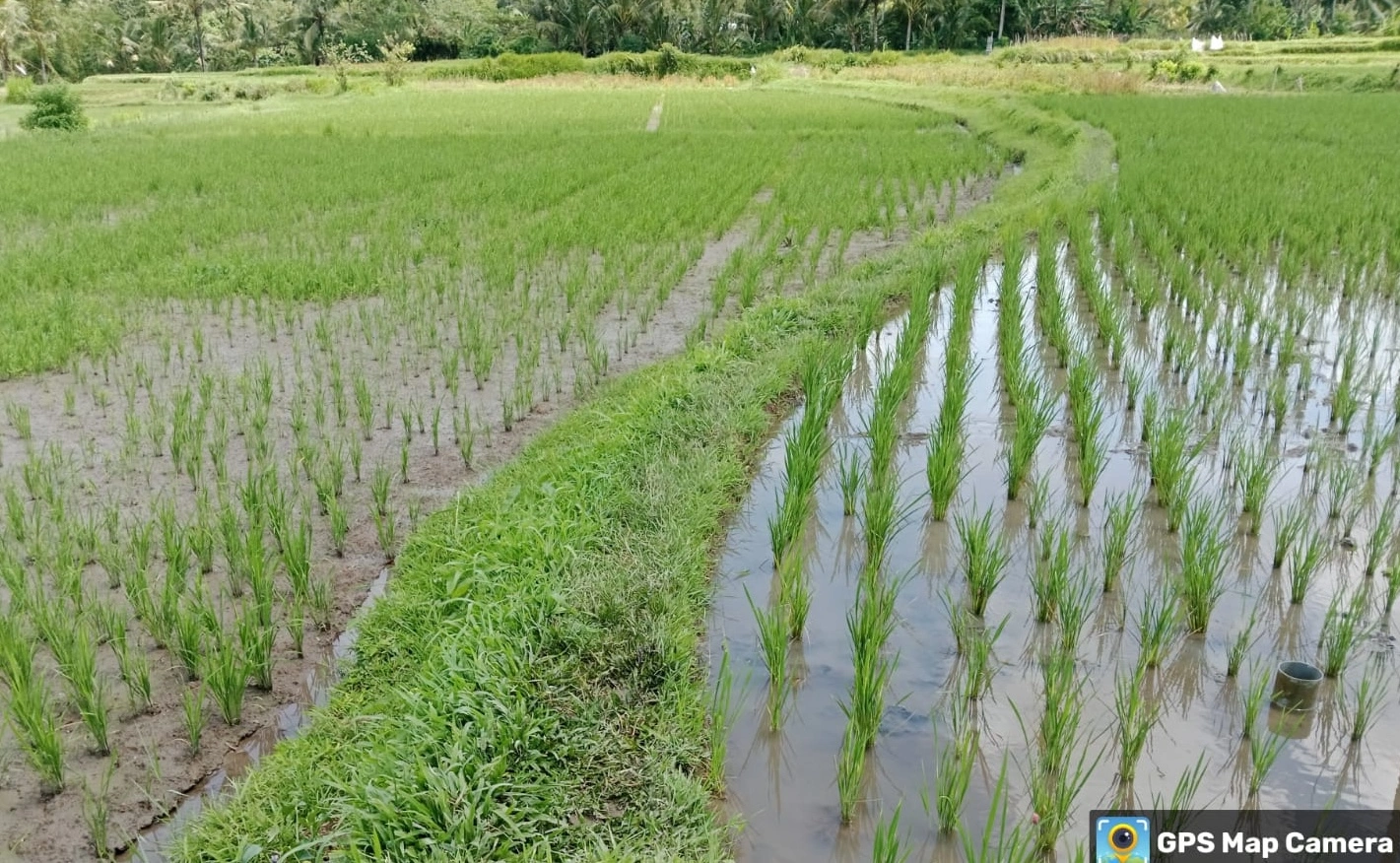
Time- and GPS-tagged photos are used to ground truth our remote sensing of AWD (left) and Flooded (right) rice fields.
are devoted to rice farming on Bali.
(2.4 million tonnes) of annual CO2e emissions could be avoided if AWD was adopted across Bali.
of Indonesia's rice is grown on Bali, and Indonesia is only 7% of global production. Bali is only the beginning, scaling to the planet is the goal.